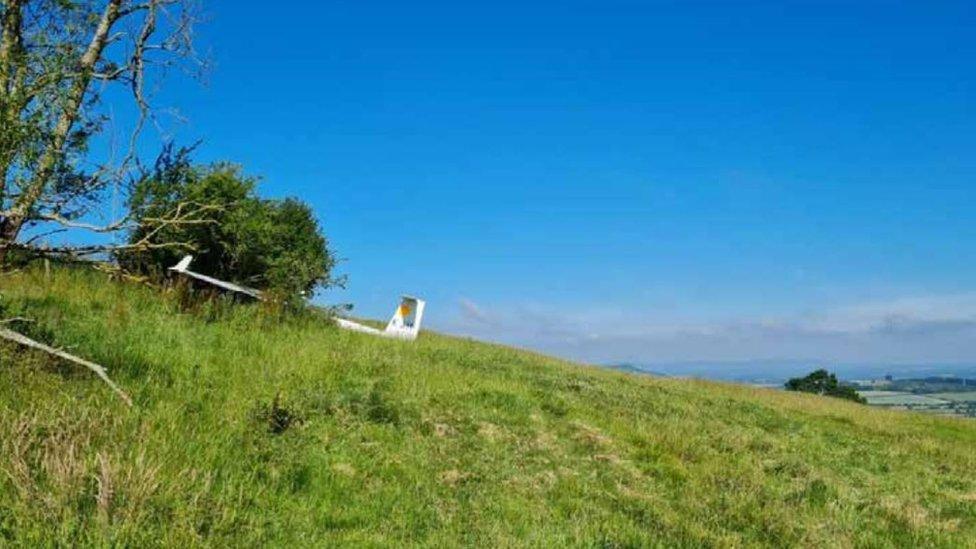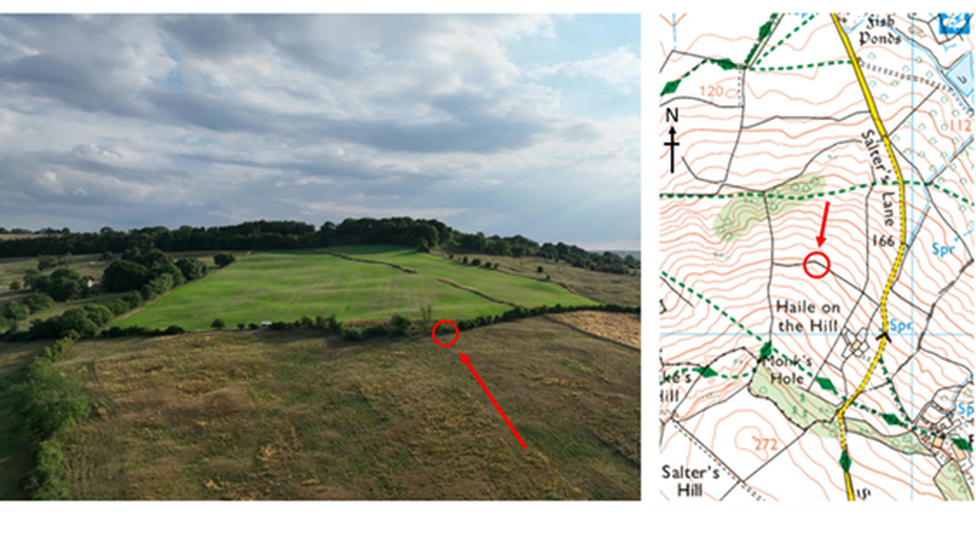Glider pilot died after rough landing in Gloucestershire
- Published

The scene of the crash, north of Winchcombe
A glider pilot died 20 days after a rough landing in a Gloucestershire field that left him with a broken neck.
The experienced pilot's choice of a field with a steep slope and rough surface on 7 July, 2022 was "out of character", an accident report says.
It said a number of reasons may have led him to choose the landing spot, including glare from the sun.
The Air Accidents Investigation Branch, external concluded there was no defect in the DG-300 Elan G-CKJH aircraft.
Its pilot - who had a pre-existing medical condition - had become paralysed minutes after the landing, the report said.

The crash site was on a steep field
Other reasons that might have led him to select the landing site include the colour of other fields and possible dehydration, the report said.
His flight computer with a moving map display had also stopped working some 40 minutes before the crash because of a charging problem, it confirmed.
The pilot, who was not named in the report, told friends he had avoided larger and flatter fields in the valley as they had crops growing in them.
He had had "extensive gliding experience" for more than 70 years, including completing more than 220 field landings and was a regular participant in competitions in the UK, the report said.
On the day of the crash he had been taking part in an annual gliding competition from Long Mynd Airfield, Shropshire, taking off at 14.48 BST.
Glider 'jerked violently'
At around 17.20 BST the aircraft was passing north of Winchcombe when the pilot decided he would be unable to get back to the launch site that day.
On touchdown at 17.30 BST, the aircraft "immediately struck something causing the glider to jerk violently", which caused the neck injury, before coming to rest in a fence.
Scans showed a fracture to his C7 vertebra and a large haematoma, made by bleeding into the spinal column pressing on the spinal cord which caused the paralysis, the report said.
The pilot was able to get himself out from the cockpit and move a short distance from the glider and messaged his retrieval team who were a "significant distance away".
He then started to lose feeling and function below the neck and was found by the landowner, conscious but paralysed, some time later.
The pilot was airlifted to hospital but died 20 days later due to complications from his injury, exacerbated by a pre-existing medical condition - ankylosing spondylitis (AS).
The condition can cause the spine and other body parts to become inflamed as well as the fusion of bones in the spine.
The report noted the condition may have caused the pilot's spine to be "significantly weaker" than normal.

Follow BBC West on Facebook, external, Twitter, external and Instagram, external. Send your story ideas to: bristol@bbc.co.uk , external